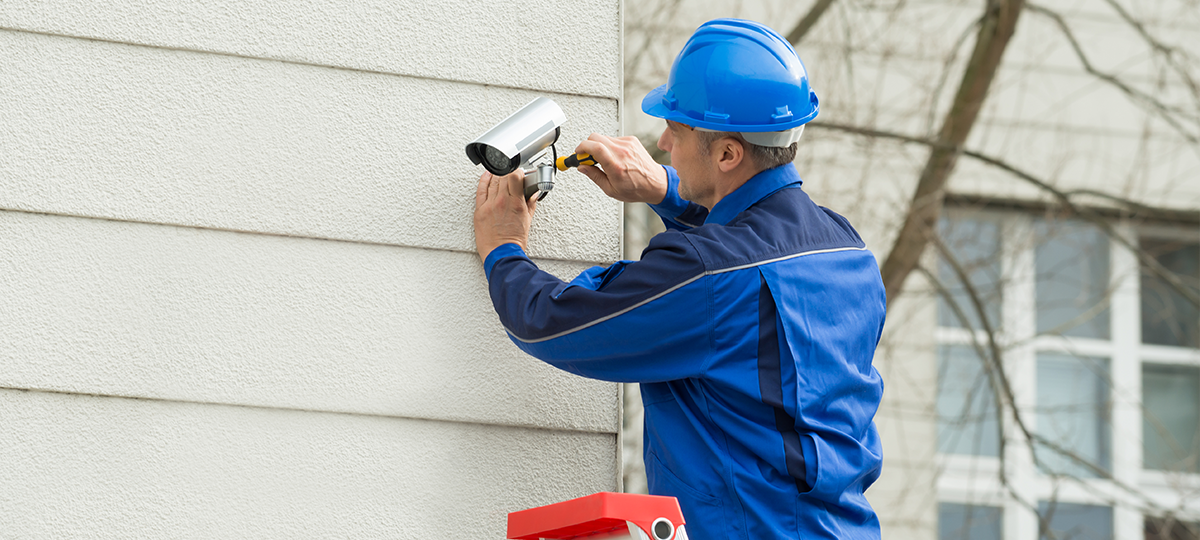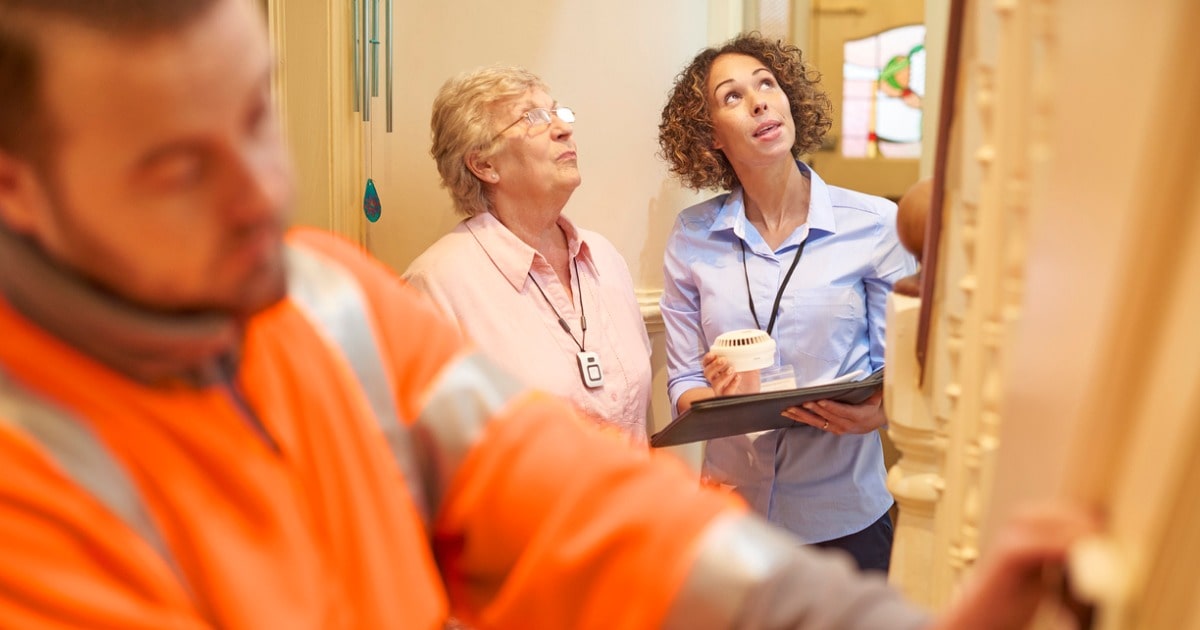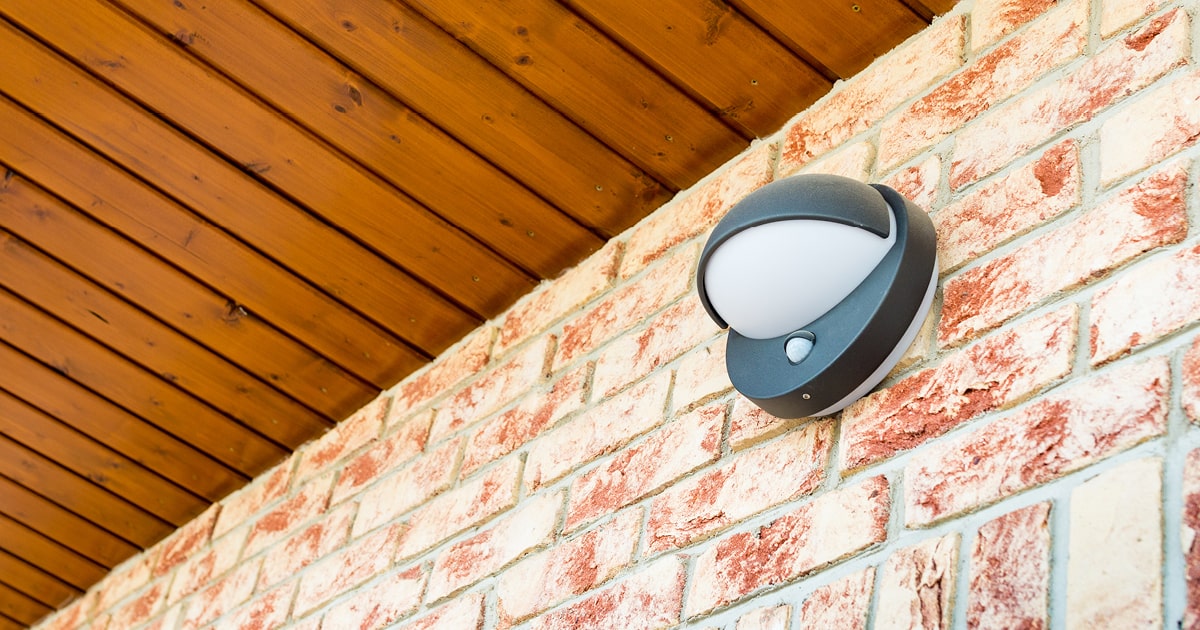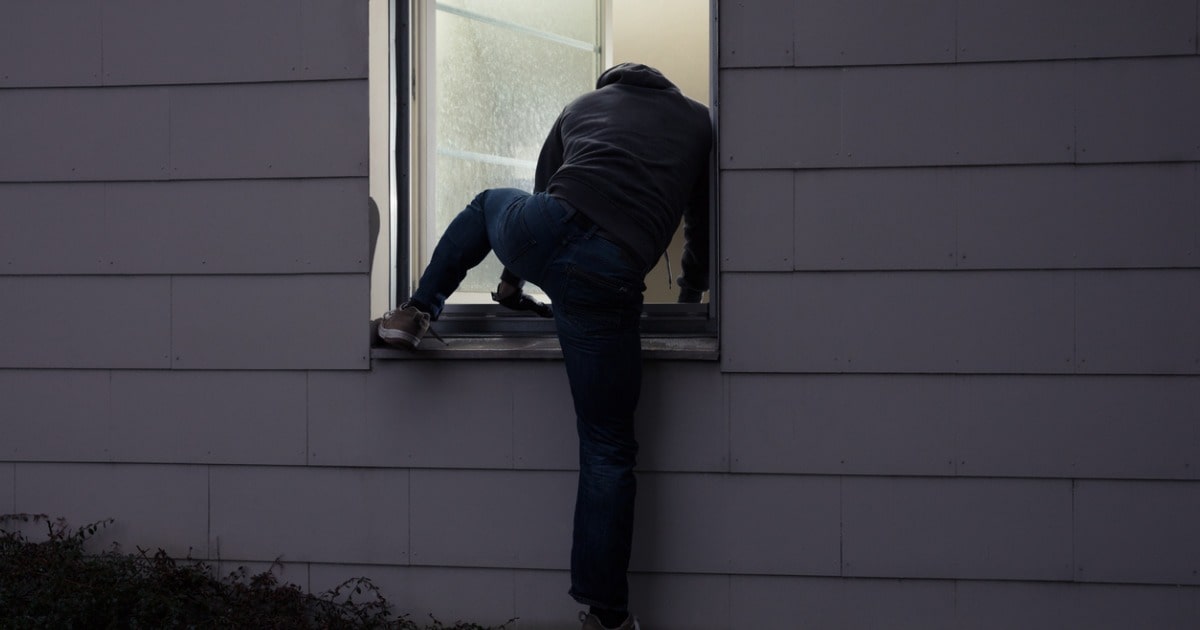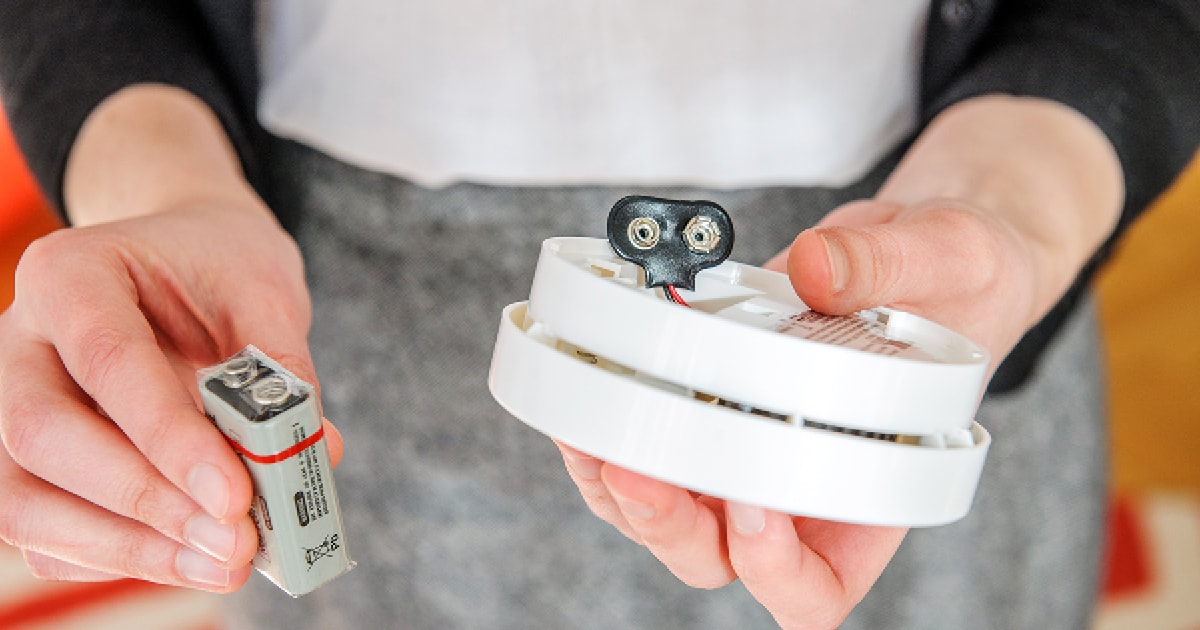Fire Safety for Multistory Buildings
While it can seem similar to homes or businesses, multistory properties have unique demands for fire safety. Whether your property includes a mid-rise condo and business building or multiple low-rise apartment locations, it requires additional care and consideration when evaluating the protection of inhabitants from fire hazards. If a fire breaks out in one section of your building, people will be affected differently based on the location and the safety measures in place. Protecting the lives of your tenants, employees, and customers in a fire is paramount, so property managers must do what they can to prepare. Here are 4 ways to promote fire safety for your multistory property.

1. Install and test fire protection systems
Fire prevention, protection, and suppression systems are crucial to a building’s infrastructure, and their importance increases when a building has multiple stories. Comprehensive systems must be installed properly to protect anyone inside or around the building.
Your property’s fire systems should include elements like:
- Fire alarms
- Smoke control systems
- Sprinkler systems
- Smoke and carbon monoxide detectors
- Control panels
- Fire department connections
- Fire doors or protection boards
- Fire suppression systems
In addition to ensuring these systems cover every residential or commercial unit within your building, they should include any common areas like hallways, stairwells, or lobbies.
Once installed, these systems must be inspected regularly to ensure they are in good condition. Fire inspections and other maintenance efforts are critical to keeping your systems within fire codes and avoiding fines due to fire safety violations. Outside of the fire protection systems, check that any emergency power sources are in working order. Your systems will depend on those backup power sources if your building loses power, and they will not work if those sources are faulty.
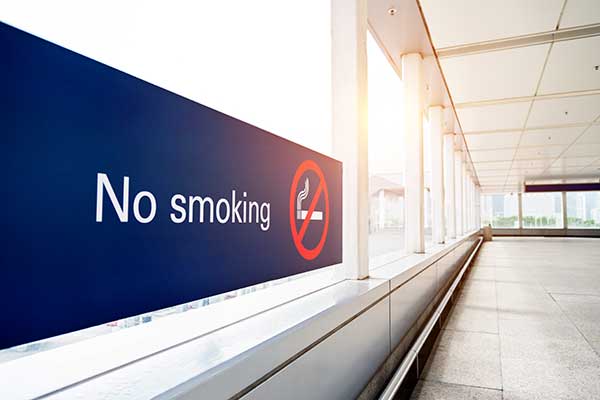
2. Set fire safety rules for your tenants
While most fire prevention efforts depend on you, you can delegate some of these efforts to your tenants by setting fire safety rules for your property. If you include them in your leasing agreement and highlight them during onboarding, your building’s inhabitants can be part of a collective effort to prevent fires. Fire safety should be a collaborative, property-wide effort that starts with property managers and extends to staff and tenants.
Rules you can mention include:
- No smoking indoors or anywhere on the property
- Do not leave candles unattended
- Keep points of entry unobstructed
If you plan to conduct semi-regular fire inspections or walkthroughs of your property’s units, ensure your tenants are informed of this and agree to it as part of their leasing agreement. Whatever you choose to do to protect your tenants, they need to be informed so they’re aware of your efforts. Additionally, this documentation can help prove your attempts to implement safety measures if an incident and subsequent investigation occur.
3. Develop and share a fire safety plan
Because smoke and fire tend to rise, a multistory building’s layout requires additional efforts to protect inhabitants because they’re at different vertical levels. Based on a building’s structure, size, and features, property managers need to assess every floor’s layout and determine the best emergency plans for employees and tenants. Standard and emergency exits should be identified and accessible at all times, and each floor should have at least two clearly outlined escape routes.
Points that you can mention in your fire safety plan might include:
- Familiarize yourself with exits near your unit
- Walk away from the building once you exit
- Do not prop stairwell or hallway doors open
- Exit through a stairwell instead of an elevator
- Notify first responders of anyone still inside
Once you’ve developed an evacuation plan for your building, you need to share it with your tenants and display relevant diagrams in your building. Conducting fire drills and appropriate safety training events can help supplement your efforts and ensure everyone in the building is as prepared for a fire as possible. Evacuation plans should be reviewed regularly, especially if your building undergoes structural changes.
4. Manage repairs and construction
While it may seem like a no-brainer to property managers, staying on top of repair requests and construction projects is more critical to fire hazards than many realize. Outside of conducting regular inspections, managing repairs means getting crucial systems back in working condition and maintaining tenant satisfaction. If left unaddressed, tenants and employees may feel inclined to implement a quick fix that can contribute to additional safety issues and fire hazards.
A typical example involves heating, ventilating, and air conditioning (HVAC) systems in a multifamily property. If a unit’s HVAC system stops working during the winter and is not repaired quickly, its residents may purchase and use multiple space heaters to stay warm. Misused heat sources are a common winter fire hazard that significantly increases the chances of a fire. If you quickly handle repair requests, your residents and employees are less likely to try DIY solutions.
Similar to repairs, construction projects can often interfere with any fire systems in the affected area. If a fire breaks out in a building’s construction zone when no one’s around, it has a greater chance of causing significant damage before the inhabitants learn of it. People trying to escape may be in greater danger with less time to evacuate or get help from first responders. Do your best to manage construction projects efficiently and monitor for increased hazards until completion.
While fire safety is a critical part of any business, putting in adequate effort can be difficult when combined with managing your property’s day-to-day operations. With FSS Technologies, property managers and business owners can rest easy knowing their fire safety plans and systems are in capable hands. Our knowledgeable team of expert service technicians is trained to build custom solutions that follow industry standards and use cutting-edge technology. From system installations to inspections and everything in between, our team and services are here to help. Contact us today to learn more about how we can help you optimize fire safety.
